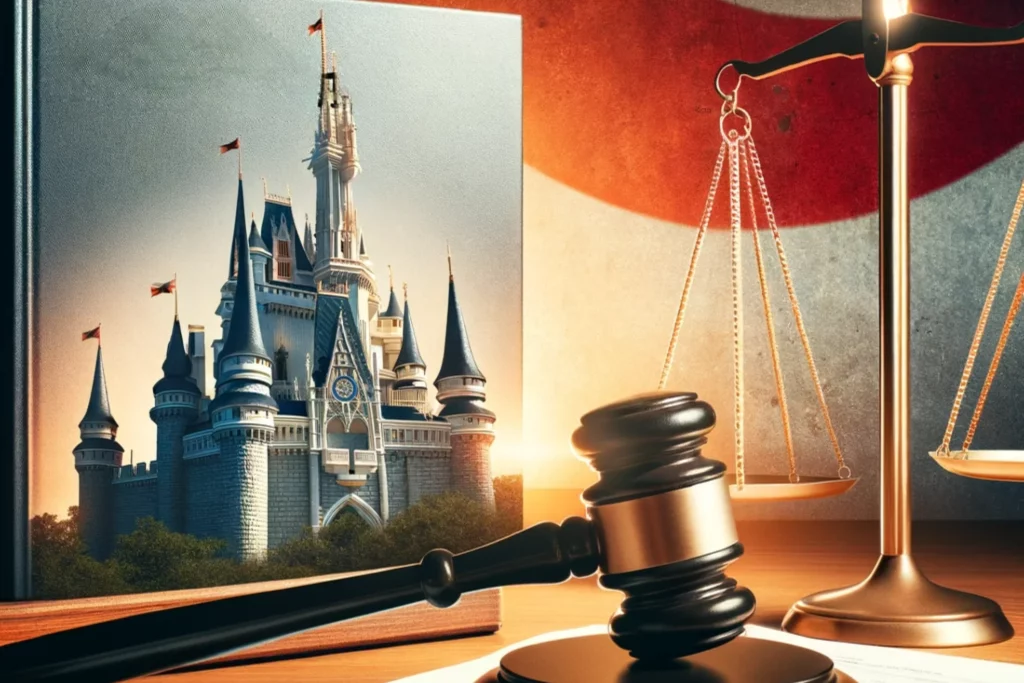Understanding Disney’s Tax District Controversy: Legal and Ethical Dimensions
In a recent escalation of tensions between Disney and the administration of Governor Ron DeSantis, a report from the Central Florida Tourism Oversight Board has levied serious accusations against Disney’s management of its special improvement district. This report, emerging amid a political standoff, alleges that Disney has engaged in questionable practices that echo historical monarchical governance.
Key Points:
- Special District Governance: Disney has been in control of a special improvement district, known as the Reedy Creek Improvement District, since 1967. This unique governance structure granted Disney extensive autonomy, including the ability to operate its own essential services.
- Unfulfilled Commitments: The report alleges that Disney failed to fulfill its promises to build public amenities such as hospitals and affordable housing in the district, instead focusing on expanding its theme parks, which has led to surrounding communities shouldering the burden of providing these services.
- Allegations of Improper Influence: Former district employees and board members are accused of accepting gifts from Disney that are likened to bribes. These gifts supposedly influenced them to prioritize Disney’s interests over public welfare, raising concerns about corruption and conflicts of interest.
- Disney’s Response and Legal Standoff: Disney has countered the report, claiming it is biased and not credible. The company asserts that the governance changes in the district, initiated by Governor DeSantis, are retaliatory, following Disney’s opposition to the ‘Don’t Say Gay’ bill in Florida.
- Legal and Ethical Implications: The controversy presents complex legal issues, including potential breaches of contract and corrupt practices by Disney. It also raises constitutional questions about the balance of power between corporate entities and government, as well as the implications for freedom of speech and corporate governance.
The conflict centers around the special district, previously known as the Reedy Creek Improvement District, which has been predominantly under Disney’s control since 1967. This arrangement allowed Disney certain privileges, including the creation of its own essential services such as fire and police departments. The report suggests that Disney’s governance extended to such an extent that it could, theoretically, construct a nuclear power plant within the district.
A significant aspect of the controversy involves Disney’s alleged failure to fulfill its promises to build public amenities like hospitals and affordable housing. Instead, the company focused on expanding its theme parks. This shift in priorities, according to the report, has burdened surrounding communities with the responsibility of providing essential services for Disney employees and their families.
The report accuses former district employees and board members of accepting gifts from Disney, likened to bribes, which purportedly influenced them to prioritize the company’s interests. These allegations point to a potential conflict of interest and raise questions about the integrity of the district’s governance.
In response to the claim, Disney has criticized the report as biased and lacking credibility. The company argues that the recent changes in the district’s governance, driven by Governor DeSantis, are a form of retribution for Disney’s public opposition to Florida’s HB 1557, known as the ‘Don’t Say Gay’ bill. Disney maintains that it has made significant contributions to the Central Florida economy and is committed to the region’s development.
From a legal perspective, this situation presents a complex interplay of corporate governance, freedom of speech, and governmental authority. The allegations, if proven, could have significant legal ramifications for Disney, potentially involving breaches of contract and corrupt practices. Furthermore, the state’s intervention in the district’s governance raises constitutional questions, particularly concerning the right to free speech and the separation of corporate and state powers.
The ongoing dispute between Disney and the Florida government underlines the challenges of balancing corporate autonomy, governmental oversight, and public interest. As the situation evolves, it will undoubtedly have implications for corporate governance, legal frameworks surrounding special districts, and the broader relationship between private entities and government bodies.
Source: FOX Business, “Disney’s Tax District Accused of Shady Dealings Amid DeSantis Standoff: ‘Akin to Bribes'” (December 4, 2023).



